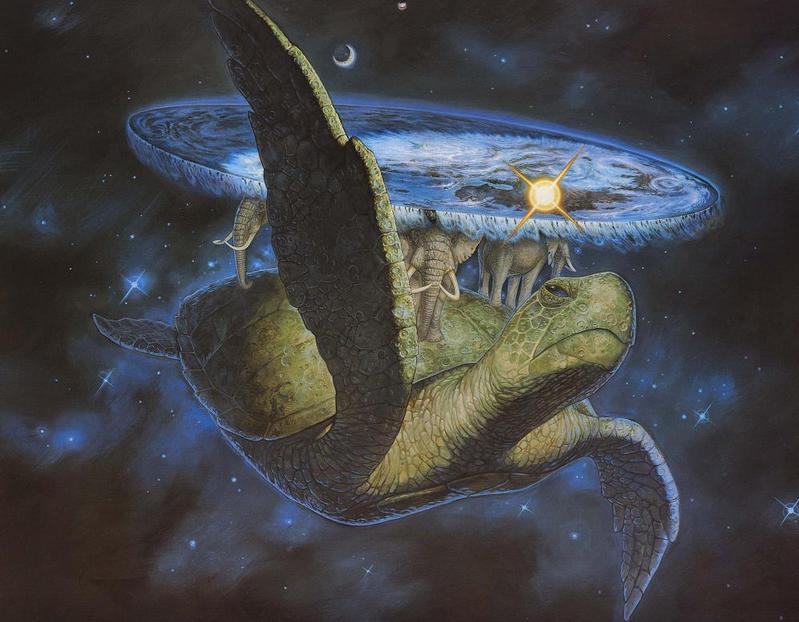 1989, I was eight years old and massively into fantasy such as The Hobbit and The Chronicles of Narnia, even Choose Your Own Adventures. Then, I happened upon this funny looking little book called Truckers, by Terry Pratchett. I can't remember if I received it as a present, or if I picked it up at one of the book sales the school had. All I know is I was intrigued by this cartoon-like cover featuring gnomes (actually, nomes) using everyday objects which are huge to them. There was movement, action and humour, all hallmarks of the book itself as well. These nomes live under the floors of a department store which is their entire world and must formulate an escape plan and brave the mythical realm of the outside when the store is slated for demolition. I was hooked. These nomes were fantastical creatures, but they acted like humans and you could relate to their squabbles and their triumphs. And there was nothing po-faced about it. It was the least "taking itself seriously" fantasy book I'd ever read. I devoured the second and third installments in the series which both came out in 1990 (Terry was one of the most prolific authors ever. He actually released five books in total in that year alone). The third book was the first time I'd ever read a novel in one day. Then I looked to see what else was out there by Terry Pratchett. The front of the books said that he had also written the Discworld series, of which there were about ten at that time. Luckily, my mum worked in a bookshop and could get all the paperbacks for me at discount prices. I steamed through them and then read each new installment as it came out. I just had to wait a year after the hardback came out to get the paperback which I would receive for my birthday or Christmas.
1989, I was eight years old and massively into fantasy such as The Hobbit and The Chronicles of Narnia, even Choose Your Own Adventures. Then, I happened upon this funny looking little book called Truckers, by Terry Pratchett. I can't remember if I received it as a present, or if I picked it up at one of the book sales the school had. All I know is I was intrigued by this cartoon-like cover featuring gnomes (actually, nomes) using everyday objects which are huge to them. There was movement, action and humour, all hallmarks of the book itself as well. These nomes live under the floors of a department store which is their entire world and must formulate an escape plan and brave the mythical realm of the outside when the store is slated for demolition. I was hooked. These nomes were fantastical creatures, but they acted like humans and you could relate to their squabbles and their triumphs. And there was nothing po-faced about it. It was the least "taking itself seriously" fantasy book I'd ever read. I devoured the second and third installments in the series which both came out in 1990 (Terry was one of the most prolific authors ever. He actually released five books in total in that year alone). The third book was the first time I'd ever read a novel in one day. Then I looked to see what else was out there by Terry Pratchett. The front of the books said that he had also written the Discworld series, of which there were about ten at that time. Luckily, my mum worked in a bookshop and could get all the paperbacks for me at discount prices. I steamed through them and then read each new installment as it came out. I just had to wait a year after the hardback came out to get the paperback which I would receive for my birthday or Christmas. |
| The Discworld |
Terry ended up writing over seventy books including his collaborations. Some are better than others, of course, but all carry his unique stamp. During the last few years of his life when his brain was under threat of a disease, he not only continued writing but also became a fierce campaigner and advocate of the "Right to Die", stating that people should have a choice over the manner of their own passing before that choice is taken away from them, and making TV documentaries about possible treatments for Alzheimer's. Terry passed away peacefully at his home, surrounded by his family, at 66 and while on the one hand it's sad that he went at still such a young age, I'm also glad his disease did not get a chance to erode one of the brightest minds on the planet.
Here's a link to Terry's Amazon page. If you've never read one of his books before, pick one up and give it a go. Start wherever you like. It's all good.




.jpg)
